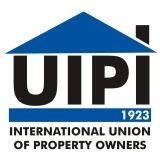Commission publishes the Clean Energy Package
On 30 November 2016, the European Commission published one of the biggest legislative packages ever: the “Clean Energy for All Europeans ”.
The package includes sets of legislative measures and several communications. UIPI has been very active in analysing it in the light of property owner interests and is putting great efforts, together with other representatives of the European private real estate sector, into improving the legislative Proposals to guarantee affordable housing for European citizens and prevent overburdening of property owners.
The Clean Energy Package includes revisions to existing legislation as well as proposes new initiatives. The key Proposals of particular interest to property owners is the Revision of the Energy Performance of Buildings Directive (EPBD), the Proposal for a revision of the Energy Efficiency Directive (EED) and the revision of the Renewable Energy Directive (RED).
Energy Performance of Buildings Directive
The Energy Performance of Buildings Directive (EPBD) is the main legislative instrument at EU level to achieve energy performance in buildings and, as such, a key piece of legislation for our sector and members. The existing EPBD obliges Member States to set minimum requirements on the energy performance of major renovations, issue energy performance certificates (EPCs) for buildings and ensure that, as from the end of this decade, only “nearly zero energy buildings” (NZEBs) are built.
The on-going revision of the EPBD lays down the objective that Member States should in their long-term national renovation aim at: decarbonising the building stock by 2050 with clear milestones for 2030. It sets requirements for the deployment of electro-mobility in new and renovated residential and non-residential buildings with more than 10 parking spaces. It aims at boosting the use of smart monitoring and automation appliances for heating and cooling by proposing new requirements in multi-apartments and multi-usage buildings, as an alternative to regular inspection. Smartness is given further attention with the planned development of a “smartness indicator” to assess if a building is smart or smart-ready and to inform potential tenants and clients thereof.
![]()
Energy Efficiency Directive
![]()
The existing Energy Efficiency Directive (EED) sets binding measures to help the EU reach its 20% energy efficiency target by 2020. Under the Directive, all EU countries are required to use energy more efficiently at all stages of the energy chain, from production to final consumption. Among other things, it sets renovation targets for central government buildings, it requires energy suppliers and distributors to save 1.5% of energy each year or employ alternative measures with similar effects and roll out individual meters for heating and cooling systems.
The main aim of the revision under discussion is to set a binding EU-wide target of 30% for energy efficiency by 2030, emphasising the EU’s commitment to put energy efficiency first. The revision Proposal also contains some detailed requirements, notably strengthening the metering requirements.
Renewable Energy Directive
The current Renewable Energy Directive (RED) sets rules for the EU to achieve its 20% renewables target by 2020.
The Commission proposal updates the target to at least 27% of renewables in final energy consumption in the EU by 2030. It also offers building owners and communities greater freedom to generate, consume, store and sell renewable electricity and to increase competition and consumer choice in district heating supply.

UIPI’s Position
In order to reach the Union’s ambitious 30% binding energy efficiency target by 2030 and to move toward a decarbonised building stock by 2050 as proposed by the European Commission, UIPI, together with a coalition of the private real estate sector – including the European Historic Houses Association (EHHA), European Landowners’ Organization (ELO), European Property Federation (EPF) and the European Group of Valuers’ Associations (TEGoVA) – is working towards improving these legislative Proposals and strike an appropriate balance between benefits and costs for European citizens. We are rather critical towards some of the requirements contained in these directives, in particular the EPBD, questioning their impact on building and housing costs and the great level of detail they imply for a EU directive. Therefore, we suggest modifications to preserve the stability of our sector and guarantee that European citizens can have access to affordable housing.
Other files of the package followed by UIPI
UIPI also works on other legislative developments included in the package, in particular:




